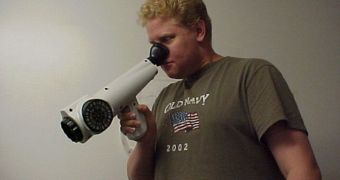Investigators with the New York University (NYU) School of Medicine Langone Medical Center have recently determined that people's sense of smell can be significantly improved through a series of training exercises. This was only demonstrated on animals thus far, but the technique is promising.
This approach could be used to improve the olfactory performances of people whose sense of smell is deteriorating due to a variety of reasons, including diseases and aging. Details of the study appear in the November 20 online issue of the top journal Nature Neuroscience.
One of the most important aspects separating our sense of smell from all other senses is that the olfactory bulb – which interprets signals from the nose – is connected directly to the amygdala, and also to the prefrontal cortex and other higher-order areas of the brain.
The amygdala controls emotions and fear, as well as the body's instinctive fight-or-flight response. The prefrontal cortex is responsible for planning, cognitive abilities, and other advanced neural functions.
What this means is that smell has direct access to a large number of very important sections of the brain, whereas all the other sense need to go through their respective processing areas, and then travel through several relays, before reaching the same locations
“Unlike information from your eyes and ears that has gone through many connections to reach the frontal cortex, the olfactory system is just two connections away. The result is an immediate pathway from the environment through our nose to our memory,” expert Donald A. Wilson, PhD, explains.
The expert – who was the leader of the new study – is an NYU LMC professor of child and adolescent psychiatry. Wilson is also a senior research scientist at the Nathan S. Kline Institute for Psychiatric Research (NKIPR) Emotional Brain Institute.
“We located where in the brain loss of smell may happen. And we showed that training can improve the sense of smell, and also make it worse,” he says. The research therefore indicates a possible area on which researchers may act to reduce this effect, and potentially even reverse it.
Investigators with the research group add that each individual smell produces its own pattern of electrical activity, and say that not practicing the detection of certain odors may lead to people losing their ability to detect it.
“Our findings suggest that while olfactory impairment may reflect real damage to the sensory system, in some cases it may be a 'use it or lose it' phenomenon, Odor training could help fix broken noses,” Dr. Wilson explains, quoted by EurekAlert.

 14 DAY TRIAL //
14 DAY TRIAL //